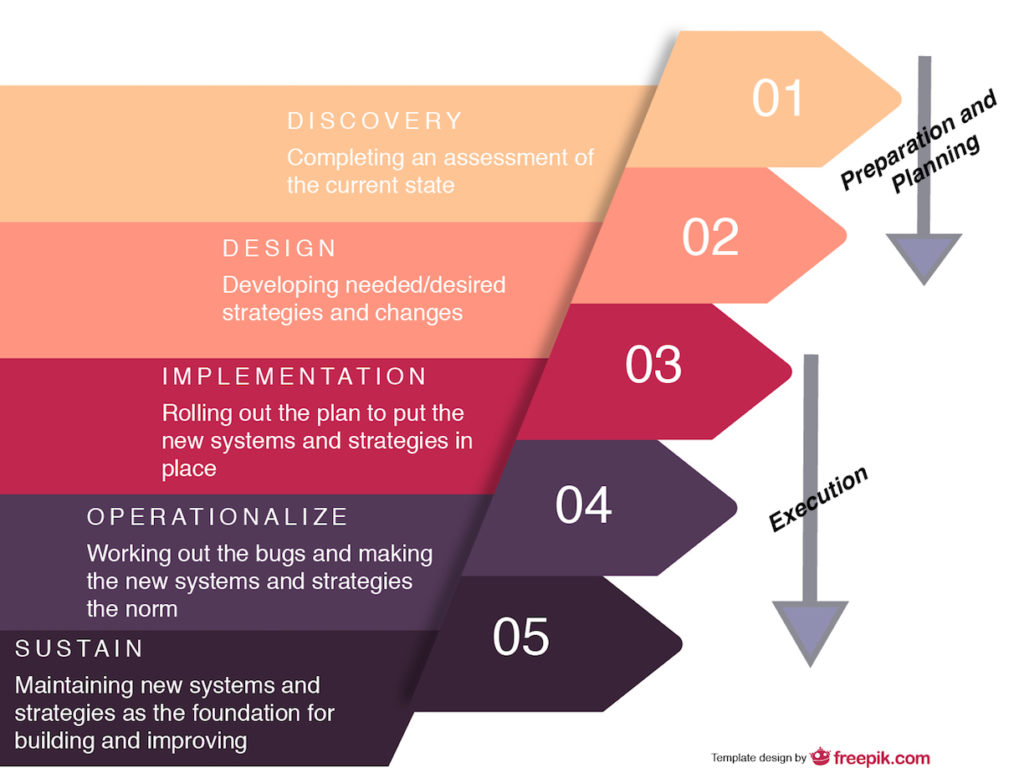- September 27, 2018
- Posted by: andreag
- Category: LeadershipOrg CultureStrategic PlanningSystems-Process-Improvement

Many of us have heard the saying “If you fail to plan, you plan to fail.” But if that is true, why do so many organizations with a sound plan in place still fail or at least struggle mightily? Having a plan is actually only half the battle, without sound execution of that plan, you might as well have no plan at all.
At PGS, our planning processes – whether they are strategic, project or change processes– incorporate 5 phases: Discovery, Design, Implement, Operationalize, and Sustain (see picture below). During Discovery and Design you build the framework of your plan, deciding what the strategies are and the steps you will take to put them in place. During Implement, Operationalize and Sustain you execute your plan. Execution is hindered and frequently halted when organizations don’t take their strategic process through all of these last three phases.
Let’s define the three key components for execution:
- Implement: During the Implementation Phase the leadership and staff actualize the plan they laid out, putting into place the changes to their systems and/or completing the tasks they outlined during the Design Phase.
- Operationalize: During this phase you work on getting the bugs out of the new system and/or adjust the strategies to get desired results. It is where you bump up against old ways and old attitudes. It is an important period of transition in which the old is phased out and the new becomes “the way we do business”, i.e., the period of fine tuning and evolving. During Operationalize, the new systems and structure truly become the norm.
- Sustain: During this phase, the new system or strategies are taken beyond the norm to become the new baseline that can be improved, developed and built on over time. They have fully become the “way things are done” that are measured and tracked, and will be the foundation for building new strategies and improvements over time.
There is a great quote from Mike Tyson that exemplifies halted execution. When Mike Tyson fought Michael Sphynx, Sphynx was predicted to win. Tyson knocked him out in 90 seconds. When asked about the fight, Tyson responded to reporters, “everyone’s got a plan until I punch them in the face.”
Implementation is putting your plan in place, i.e., getting in the ring. But if that is as far as you go, if you stop before you operationalize the change or new strategy, stop before it becomes your sustaining foundation, one “punch in the face” could take the new strategy out. The extent to which you follow implementation with operationalize and sustain is the extent to which you can take a punch, be able to adjust and to maintain what you have created.




